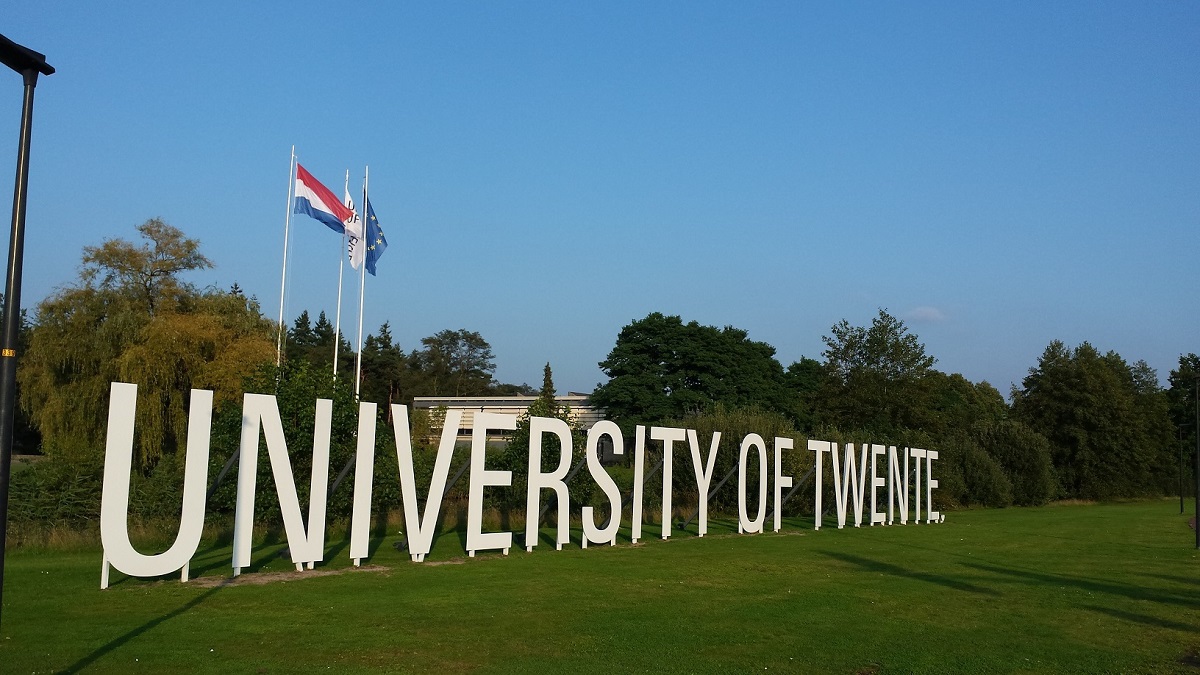The PhD-position is embedded in the national research programme FREE: Optical Wireless Superhighways funded by the Dutch Research Council NWO and various industrial parties.
KEY TAKEAWAYS
- HOURS40 hr.
- SALARY INDICATION€ 2,541 – € 3,247
- DEADLINE30 Sep 2022
We are seeking a motivated candidate to work on this research topic for 4 years full-time at the Pervasive Systems/Design and Analysis of Communication Systems Research groups within the EEMCS faculty at the University of Twente (UT), Enschede, The Netherlands. You may part of your time be located at TNO in The Hague, one of the consortium partners.
The PhD position is embedded in the national research programme FREE: Optical Wireless Superhighways funded by the Dutch Research Council NWO and various industrial parties.
The Optical Wireless Superhighways Research Program
Data generation and consumption have been growing exponentially over the past 50 years pushing traditional technologies to their limits. Future applications, such as high resolution earth observation and 5G, need new paradigms for wireless connectivity. This program will enable such transition by carrying out research into optical free-space communications to replace radio frequencies. Through a single network of networks, that seamlessly integrates satellite and ground-based communications, we foresee 100 fold increase in wireless connectivity on all length scales, offering inherent security and low latency. This program will link user needs to key enabling technologies from photonics, digital and quantum technologies to help developing concrete products and applications for our digital society.
About the Project
Traditional resource allocation in telecommunication networks is based on the scarcity of bandwidth. As such, state of the art techniques are focusing on distributing resources to users so that to satisfy some minimum throughput-latency service requirement. Free space optical (FSO) satellite networks present, however, an extremely large bandwidth. Focus should be on severe throughput reductions or outages due to a rather variable channel which needs to be accurately predicted. This project targets the creation of a proof-of-concept Software Defined Network (SDN) platform with distributed intelligence in order to allow for reliable communication under every sort of uncertain channel. As such, each intelligent agent in the SDN, placed within the satellites themselves will infer the consequence to global behaviour (e.g. network congestion and/or delay) based on local perturbation (e.g. bad channel, mixed traffic requirements) and perform proactive actions (e.g. reroute traffic via different satellite-links).
YOUR PROFILE
- Master’s degree in either Computer Science, Electronic Engineering, Telecommunication Engineering, or Mathematics;
- Experience in relevant topics such as wireless communication, networking, operations research, machine learning;
- Interested in solving analytical tasks and develop PoCs, combined with good programming skills (e.g. in MATLAB, Python or C derivates);
- A strong personality to defend your research ideas not only at university, but also in an industrial context;
- Good communication skills and a strong interest in operating at the crossroads of different disciplines;
- Excellent proficiency in English (C1; above IELTS 7 or equivalent);
- You are able to do independent research and have publication skills.
OUR OFFER
- As a PhD student at UT, you will be appointed to a full-time position for four years, with a qualifier in the first year, within a very stimulating and exciting scientific environment;
- The University offers a dynamic ecosystem with enthusiastic colleagues;
- Your salary and associated conditions are in accordance with the collective labour agreement for Dutch universities (CAO-NU);
- You will receive a gross monthly salary ranging from € 2.541,- (first year) to € 3.247,- (fourth year);
- There are excellent benefits including a holiday allowance of 8% of the gross annual salary, an end-of-year bonus of 8.3%, and a solid pension scheme;
- You will have a training programme as part of the Twente Graduate School where you and your supervisors will determine a plan for a suitable education and supervision;
- We encourage a high degree of responsibility and independence, while collaborating with close colleagues, researchers and other staff.
INFORMATION AND APPLICATION
Are you interested in this position? Please send your application via the ‘Apply now’ button below before 1st of October 2022, and include:
- an application/motivation letter, emphasizing your specific interest, qualifications and motivation to apply for this position;
- an updated CV including a list of all courses attended and grades obtained, and, if applicable, a list of publications;
- A short description of your MSc research
For more information you are welcome to contact prof. dr. Hans van den Berg (j.l.vandenberg@utwente.nl), prof.dr. Paul Havinga ((P.J.M.Havinga@utwente.nl).), or dr.ir. Alessandro Chiumento (a.chiumento@utwente.nl).
We are looking forward to your reaction!
